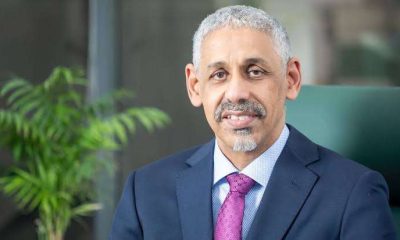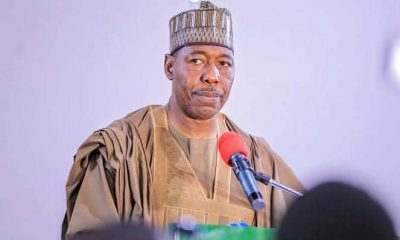Business
Experts push reforms, resource mobilisation to drive growth in Africa’s fragile states

African economists and development leaders have called for urgent governance reforms, stronger domestic resource mobilisation, and innovative financing partnerships to accelerate growth and transformation in Africa’s fragile and transition states.
The call was made during a high-level Policy Dialogue organised by the African Development Institute (ADI) of the African Development Bank Group (AfDB) on the sidelines of the 66th Annual Conference of the Nigerian Economic Society (NES) in Abuja.
The session, themed “Driving Africa’s Economic Transformation in Transition States: The Role of Capacity Development and Knowledge Management”, drew hundreds of economists, policymakers, academics, students, and international partners, a statement from the organisers said on Wednesday.
Abdul Kamara, AfDB Director General for the Nigeria Country Department, said Africa must grow at least 7% annually and sustain per capita GDP growth of 3.5% for decades to meet the African Union’s Agenda 2063 targets.
He disclosed that the continent needs $811 billion annually to achieve inclusive growth and sustainable development, but faces a funding gap of about $680 billion. Transition states alone, he noted, require $210 billion each year with a shortfall of $188 billion.
Kamara emphasised inclusive growth centred on jobs, youth and women empowerment, and structural reforms, citing AfDB’s $618 million iDICE initiative in Nigeria to boost innovation and the creative economy.
Eric Ogunleye, Director of ADI, warned that fragility is worsening, with 24 African countries now classified as transition states compared to 22 four years ago. “Over 250 million Africans are directly affected by fragility, with more than 44 million forcibly displaced by mid-2024,” he said, noting that conflict-affected countries have seen a 20% drop in growth as funds are diverted from infrastructure and health to security.
Experts stressed that building resilience in conflict hotspots such as the Sahel, Horn of Africa and Great Lakes region requires governance reforms, visionary leadership, and climate adaptation. “We must move away from copy-and-paste policies and develop locally relevant strategies,” Ogunleye added.
Emmanuel Owusu-Sekyere of the African Center for Economic Transformation (ACET) said meaningful development must be preceded by conflict resolution and governance reform. He described corruption and weak political will as Africa’s “elephant in the room,” urging governments to curb illicit financial flows and implement non-partisan plans.
Adeyemi Dipeolu of ADI highlighted Africa’s low tax-to-GDP ratio of 17%, compared with 29% in Latin America and 26% in East Asia, stressing the need to plug $90 billion lost yearly to illicit financial flows and harness $56 billion in remittances.
Jane Mariara of the Partnership for Economic Policy (PEP) pointed to shrinking donor support but rising climate finance inflows, which reached $137 billion in 2024. She urged stronger debt management and wider use of blended finance and private sector partnerships.
Closing the session, Seedwell Hove of ADI said capacity development and knowledge management must underpin reforms if Africa is to move from fragility to resilience and from transition to transformation.








